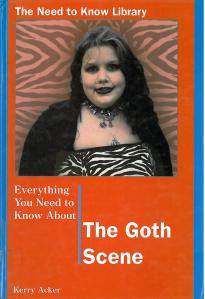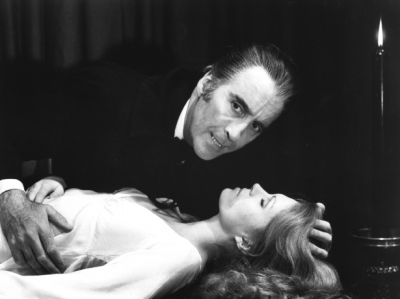Posts Tagged ‘religion’
AW[a]RE
February 4th, 2013 Posted 4:58 am
Recently, I shared a link on my personal Facebook page about an Indiana lawmaker who wants to bring the Lord’s Prayer back into public schools. My friends fall solidly on both sides of that issue, so debate in the comments was running a little hot. I see no problem with allowing anyone a few moments of quiet at the start of their day. I take it at work to get settled, but no one is telling me to pray or insisting that I pray a specific prayer. And THAT is my problem with the proposed legislation. Reciting the Lord’s Prayer alienates anyone who isn’t Christian and, depending on the version recited, can further alienate either Protestants or Catholics. As much as parents and school administrators work to combat bullying, we cannot allow it on the state level. Plus, there is that whole separation of church and state thing and it seems this would fall dangerously close to a religion being chosen, endorsed, and mandated.
 During the fiery discussion that followed, Eric brought up the AWRE program. Anderson Weekday Religious Education. This is a program where fourth graders are bussed from Anderson Community Schools to a local church to “introduce your child to the Bible, Christian principles, and character traits through Bible lessons.” We have teacher friends insisting they’d never heard of the program and that it could not possibly exist in Anderson. Whisper is our fourth fourth-grader. We’ve very familiar with the program and with our reservations about it.
During the fiery discussion that followed, Eric brought up the AWRE program. Anderson Weekday Religious Education. This is a program where fourth graders are bussed from Anderson Community Schools to a local church to “introduce your child to the Bible, Christian principles, and character traits through Bible lessons.” We have teacher friends insisting they’d never heard of the program and that it could not possibly exist in Anderson. Whisper is our fourth fourth-grader. We’ve very familiar with the program and with our reservations about it.
- If parents want their kids to attend church, there are ample opportunities outside of school time.
- I’m incredibly uncomfortable that my daughter’s personal information was provided to an outside group – and no one can tell me if the involved parties have undergone background checks. I cannot attend a field trip with the class if I haven’t had one.
- Anderson Community Schools does not impress anyone with its test scores or graduation rates. Kids need to be in school when they can and we’re doing a disservice by pulling them out of class.
- There has been no plan set in place to deal with the kids whose parents decline this opportunity. Ravynn’s 4th grade year, she was one of two students who stayed behind. She spent that time each week coloring. Really.
- When I called the AWRE coordinator in 2011, I was told they were restricted to non-teaching time for this event. It didn’t seem possible that every fourth grade class had a full hour [plus, if we account for drive time] of non-teaching time available – let alone at the same time. When I talked to the school, the principal explained the reality of this: the teachers are not allowed to teach the remaining students. I won’t be fair to the kids who go. Yet, somehow, it’s fair to leave the other students to color…
Now, this is a legal outing as defined by Indiana statute 20.8-1-3-22. I suspect that the people involved are taking advantage of the vague language.
In theory, I have no problem that the program is offered. I really do not. But it’s interfering with education. I do have a problem with that.
I don’t know if my phone calls and expressed concerns helped, but Whisper reports that she and the other three students who stayed at school spent their free time in the computer lab working on math review/enrichment. I hope this is offered through the remainder of the program. Unfortunately, I also understand that the other three children either lost their permission slip or didn’t receive one at their home and the school made sure they got another copy. That makes the program illegal and I look forward to seeing what the FFRF has to say about that.
Tags: AWRE, fourth grade, religion, whisper
Posted in Daily Life
Everything? Really? [part 2]
July 8th, 2012 Posted 6:33 am

Cover, Everything You Need to Know About the Goth Scene
Acker, Kerry. Everything You Need to Know About The Goth Scene. New York: The Rosen Publishing Group, 2000.
Continued from Part 1.
Chapter 2/Gothic Philosophy: Sigh. I think the final thought in Chapter 1 would suffice. Acknowledging both the good and bad of human nature and the world in order to fully appreciate both. Then there is a shift to suggesting that Goths focus on the dark and the bad and place emphasis on suffering, sorrow, fear, and death. While I do picnic in cemeteries [we have one scheduled for July 29th – see our Facebook page for details], I don’t focus on any of those things. I don’t mean to suggest that my experience is shared by everyone, but I do mean to suggest that acknowledging the darker things does not necessarily equate to a focus on them. It’s just so different from the experience of “normal” people that it might look like a focus. I don’t know. I’m still trying to figure out the angle of this book.
Knowing more about the author than “is a freelance writer” would help a lot. Either they [Kerry could be either male or female] are Goth and trying to honestly explain the culture, but are doing it poorly, or they are not Goth and writing a resource book with a poor understanding of the culture. Even still, maybe an editor made a mess of a perfect book. The world may never know.
Dictionary.com defines Philosophy as:
1. the rational investigation of the truths and principles of being, knowledge, or conduct.
2. any of the three branches, namely natural philosophy, moral philosophy, and metaphysical philosophy, that are accepted as composing this study.
3. a system of philosophical doctrine: the philosophy of Spinoza.
4. the critical study of the basic principles and concepts of a particular branch of knowledge, especially with a view to improving or reconstituting them: the philosophy of science.
5. a system of principles for guidance in practical affairs.
6. a philosophical attitude, as one of composure and calm in the presence of troubles or annoyances.
None of those seem appropriate – at all; however, Dictionary.com defines aesthetic as: having a sense of the beautiful; characterized by a love of beauty. BINGO!
The “Who are Goths?” section of this chapter states, “followers of the Goth aesthetic include people of different ages, sensibilites, religions, politics, and careers… Goths are a group of people with broad interests such as history, literature, music, mythology, and fashion.” Good. True. But sadly, the rest of the book attempts to force goths into little boxes in order for it to truly be understood. I’m not sure this is intentional. I suspect the author is attempting to bring light [haha] to the darker aspects and forgets to mention that this isn’t ALL there is. An attraction to darkness can attract people to Goth culture – really, not everyone “gets it,” but we do appreciate the things that non-Goths do as well. This book seems to try to force a separation where one is not necessary and every chapter includes a warning to look for signs for violence and depression.

Christopher Lee as Dracula
A picture of Dracula [not the one I chose because I’m more of a Christopher Lee fan] holds the caption, “Many Goths are fascinated with the mystery of death and the occult,” BUT MANY ARE NOT. I’m sure that reminder would become annoying and overhelming, but it’s so necessary.
Chapter 2/Gothic Lifestyle: An overview of humans in general… A wide range of interests [including music, fashion, other hobbies enjoyed alone or in a group], the opportunity to experiment with sexuality [specifically with gender roles], and interest in different religions [or in no religion, although the focus here is in Paganism and Vampirism, with a note on Christianity].
After reviewing the aspects of the Gothic Lifestyle presented and noting the points made which are 90% pointing out how different Goths are from most of the people in the world, Acker warns us about subscribing to stereotypes.
Perhaps I am just thin-skinned on this topic. I show people the similarities between them and me and then let them notice the differences. One of the girls I work with says all the time, “You’re just a normal person. Why are people so freaked out by you?”
Why indeed.
[more to follow…]
Tags: everything you need to know, fashion, philosophy, religion, vampires, what is goth
Posted in Books

